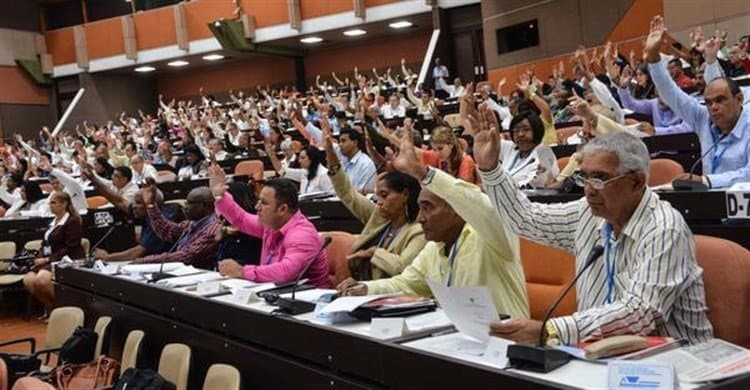
Unanimity in a voting result for a political party or any other political process is normally the outcome of a rigged or undemocratic ballot. They have 90% majorities in the Chinese ‘national people’s congress’ or elections a Castro runs for in Cuba.
It is,
Even if the support he enjoys in the Parliamentary Group, say, is shy of 50%, Adrian Delia has very strong legitimacy credentials that cement him to the ground if he does not want to be leaving of his own accord.
The reasons why he should do so have been examined and he and his team have refuted all of them. Sound logic has been scarce but since this is not a debating society logic does not get extra points. Only votes do.
Without his agreement that the interests of the party and the country are best served by his departure from the office of leader, any effort to remove him is likely to be either unsuccessful or mortally wounding for the PN.
Of course, if he means to stay, one would then have to assess not only Adrian Delia’s views on the arguments for him to leave but his own reasons to remain in place.
And these have to be resoundingly persuasive because the 10% dissent becomes very relevant in that frame. Can Adrian Delia win an election without the dissenters?
Let’s look at who they are. Famously the Sliema sectional committee refused by a strong vote to approve a motion backing Adrian Delia. It is superficial (and entirely wrong) to put this down to Sliema voters being smarter than all the others.

Many committee members from various localities got in touch with me to tell me that the “unanimous” vote in their village was taken in their absence. They were not called for the meeting because those leading the committee knew they would cause problems. Their presence would have cracked the illusion of unanimity but none of the people who spoke to me thought they could persuade a majority to defeat the motion of support in the leader.
In the case of Sliema, it appears, the difference from other committees is not that there are dissenters (those appear to be just about everywhere) but rather that there are enough dissenters to sway the vote and take a stand in opposition to the party leadership.
There have been some murmurs that similar results could be secured in Gozo and in Naxxar among other sections and districts, but it’s impossible to be sure before the votes are declared.
The party is not only organised in geographical subsets but also in thematic vertical groupings, or ‘branches’. The first to come out in unanimous support for the party leader was the women’s branch which must have debated the merits of domestic violence allegations made by their leader’s wife before they decided their man needs their enthusiastic support.
The youth branch of the party appears to be less keen on backing the party leader.
Again here the exceptional circumstance seems to be the higher concentration of dissenters. It is stupid to conclude that Adrian Delia enjoys the support of the female vote just because the MNPN think he’s Cary Grant. And equally stupid to assume Adrian Delia is not popular with young people because the MŻPN is unwilling to issue a Warsaw Pact-style communique.
So where does this leave Adrian Delia?
The tools the party has to fight elections are restricted by many circumstances outside the leader’s control. The party’s finances have been rotten long before he stepped in to take care of them. That means the party’s ability to recruit staff and promote its message is hamstrung.
And of course, the party forms a smitten minority in Parliament which few consider a government in waiting. That means that whatever it might say, few stop to listen.
In that context, the party’s job would be to try to make the most of its depleted resources. Sectional committees and party branches are such resources. They are community leaders the party relies on to reach the areas where they are personally connected.
These are the foot soldiers in the street war that the PN has neglected for many years before Adrian Delia came on the scene. And yet, a tenth of them by Adrian Delia’s reckoning, openly declare, in spite of all the opprobrium they are facing, that they do not consider him a viable leader of the cause they are expected to fight for.
Now here’s the real challenge. Can Adrian Delia replenish these ranks if he manages to push out those who do not back him? Can he force out the minorities in the sectional committees and the branches (and the majorities in a few of those) by placing his supporters in charge instead of them?
Can he get his party to work for him?
There’s one important sign that the answer to that question, in Adrian Delia’s own view, is a simple no. The message out of his apparently combative speeches is a surrender to ‘traitors’, ‘a group of ladies’, ‘erba’ bloggers’ or as his henchman-in-chief Pierre Portelli put it recently ‘someone who was unsuccessful in the PN in the past and now wants to take it over’. The present leadership seems to be resigned to its inability to argue, campaign and mobilise support for its own politics over the din of people they do not agree with.
If they feel they can’t out-argue ‘erba’ bloggers’, why do they think they can beat Joseph Muscat?